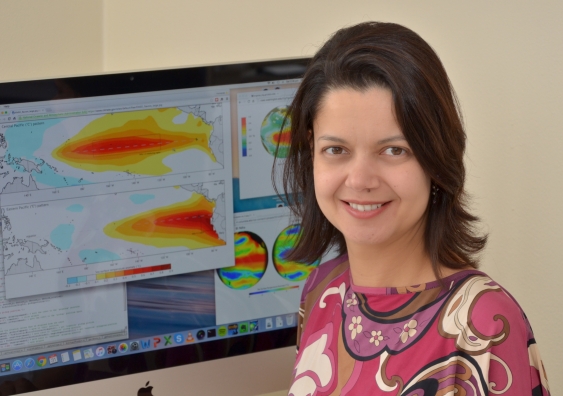UNSW scientists top the winners list for Academy of Science awards
Three UNSW scientists are among the winners of prestigious 2016 Australian Academy of Science’s awards, the most of any Australian institution.
Three UNSW scientists are among the winners of prestigious 2016 Australian Academy of Science’s awards, the most of any Australian institution.

Three UNSW scientists are among the winners of the 2016 Australian Academy of Science’s awards, the most of any Australian institution.
This year’s announcement includes 17 award recipients across astronomy, nanoscience, mathematics, chemistry, physics, environmental science and human health.
UNSW Scientia Professor Martin Green AM has won the prestigious Ian Wark Medal and Lecture for his world-record breaking work improving solar efficiency.
Professor Green, Director of the Australian Centre for Advanced Photovoltaics based at UNSW, is an acknowledged world‐leader in his field.
Several generations of his group’s technology have been successfully commercialised including, most recently, the Passivated Emitter and Rear Cell (PERC) that produced the first 25% efficient silicon cell in 2008 and accounted for the largest share of new manufacturing capacity added worldwide in 2014.
Professor Green’s fundamental and applied research has led to, and will continue to lead to significant economic benefits both in Australia and worldwide.
UNSW Associate Professor Cyrille Boyer has been awarded the 2016 Le Févre Memorial Prize for developing innovative methods of polymerisation.

UNSW Associate Professor Cyrille Boyer
His demonstration of how chlorophyll and light can control polymerisation of functional macromolecules has implications for the synthesis of macromolecules using bio-resources.
Associate Professor Boyer, who recently won awards in the Prime Minister’s Prize for Science, has also developed multimodal nanoparticles capable of delivering therapeutic molecules (such as chemotherapy drugs) that could be tracked using magnetic resonance imaging.
Dr Andrea Taschetto from UNSW’s Climate Change Research Centre has been awarded the 2016 Dorothy Hill Award for her leadership in climate systems science.

Dr Andrea Taschetto
Dr Taschetto’s research has significantly advanced our understanding of the role of the Pacific and Indian Oceans in regional climate variability.
In particular, based upon her research findings, Dr Taschetto is widely considered as a leader in the development of our understanding about regional climate dynamics and global modes of climate variability, including the El Niño Modoki phenomenon.
The Australian Academy of Science awards will be formally presented at Science at the Shine Dome in Canberra in May.
Read more about all the award winners here.